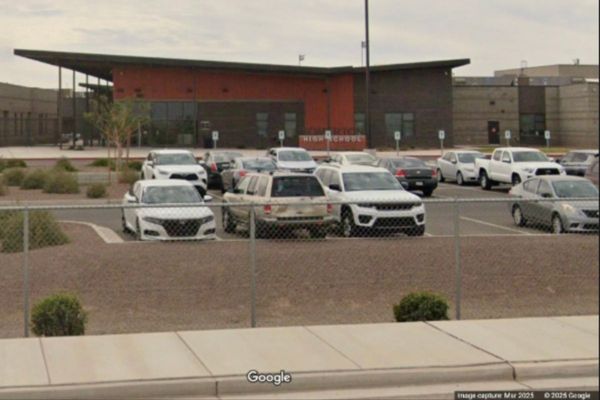
This year’s Eurovision song contest has been increasingly overshadowed by protests over Israel’s participation during its continuing war in Gaza. But controversy has often followed the international singing competition. Here are some notable previous Eurovision rows.
Stage invader interrupts SuRie
In 2018 a man invaded the stage in Lisbon during a performance of the UK entry Storm by SuRie, and yelled: “Nazis of the UK media, we demand freedom.” He was later identified as a man who had previously tried to disrupt broadcasts of the National Television Awards and The Voice. SuRie was offered the chance to perform the song again at the end of the final, but declined.
Ukraine cannot get its act together
In 2019 Ukraine withdrew from the contest after the artist selected to represent it, Maruv, refused to sign an agreement requiring her not to tour in Russia as part of accepting the nomination. With strained relations between the two countries after Russia’s unilateral annexation of Crimea in 2014, two potential replacement acts also refused the agreement, and Ukraine withdrew.
Ukraine’s song Dancing Lasha Tumbai causes stir, 2007
Ukraine’s 2007 entry, Dancing Lasha Tumbai by Verka Serduchka, sparked controversy for the way its nonsense lyrics “Lasha Tumbai” sounded like “Russia goodbye” when sung in the chorus.
Georgia entry refused for Vladimir Putin reference, 2009
Eurovision organisers refused to accept Georgia’s entry in 2009, when the country attempted to send a song called I Don’t Wanna Put In by Stephane and 3G. It was deemed to be a derogatory reference to Russia’s president.
Israel disowns its own song, 2000
Israel’s 2000 Eurovision entry, Same’ach by Ping-Pong, was disowned by the Israeli Broadcasting Authority after the band produced Syrian flags during a performance of their song, which was about an Israeli woman from a kibbutz having an affair with a man from Damascus.
Greece drops out in protest against Turkey being invited, 1975
During the 1970s, Greece and Turkey staged tit-for-tat boycotts. Greece dropped out in 1975, seemingly in protest at Turkey making its debut less than a year after the invasion of Cyprus. Turkey did not return in 1976, when the Greek entry seemed to explicitly reference the conflict.
Portugal’s song used to trigger military coup, 1974
Nineteen days after competing in the 1974 Eurovision song contest in Brighton, Portugal’s entry, E Depois Do Adeus by Paulo de Carvalho, was used as a secret signal to alert rebel captains and soldiers to launch the military coup known as the Carnation Revolution.
Rumours of General Franco vote rigging swirl, 1968
In 1968 Cliff Richard came second to Spain’s entry, La La La by Massiel, a result that has been beset by rumours of vote rigging by General Franco. In 2008, after a Spanish documentary posited more evidence of the pressure that had been applied at the highest level, Richard said that 40 years later it would still be nice if someone got in touch with him and said: “Cliff, you won that darn thing after all.”










